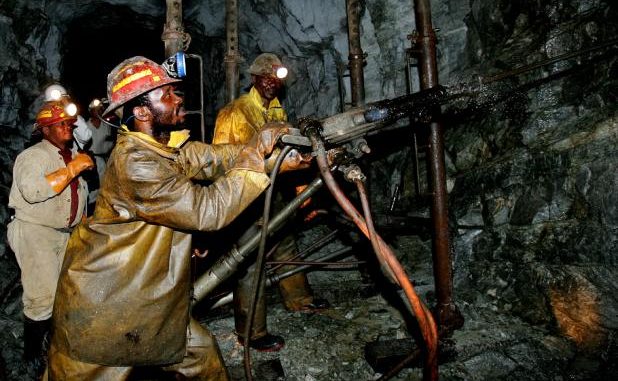
By Zandi Shabalala
LONDON (Reuters) – South Africa’s key mining industry is at risk of collapse due to political unrest and labour instability which have negatively impacted investment into the country, the chief executive of the nation’s biggest gold company said on Monday.
Political ructions in Africa’s most industrialised country including scandals surrounding President Jacob Zuma for his alleged connections to the wealthy Gupta family have caused concern among investors, putting credit ratings at risk.
The mining sector, which accounts for about 7 percent of GDP, has opposed the introduction of regulations and laws that could see the powers of the mining minister increase and social capital commitments of companies rise.
“Right now is the worst sentiment I’ve seen from an investment perspective,” Sibanye Gold’s Neal Froneman told Reuters on the sidelines of the Investing in African Mining seminar in London.
“It’s just very clear, we sit on a knife edge as an industry – it could well collapse and that means it’s unlikely that Africa’s potential will be realised because resources will be sterilised.”
The Chamber of Mines, which represents most of the industry, has said it will take the government to court over the 2016 draft of the Mining Charter which requires companies to keep black ownership at 26 percent even if they sell their stake and raises procurement from black-owned companies.
The Chamber also complains that the industry that was not consulted in the draft.
The Charter contains regulations meant to redress imbalances of the nation’s past apartheid rule and stipulates rules for white-owned companies to sell stakes to black businesses.
“The government thought that they were the boss of the industry, but they are not. They have the job to regulate,” Froneman said.
In 2014, South Africa’s main platinum producers were hit by a record five-month strike which was narrowly avoided this year.
In addition to labour instability, governance is one of the main issues plaguing investor confidence.
“Investors are dependent on safeguarding their investments through proper governance, if you have questions about a country’s governance and poor corporate governance then investors simply won’t invest,” Froneman said.
Ratings agencies Fitch and Moody’s on Friday kept their ratings on South Africa unchanged but Fitch cut its outlook for the economy to negative, citing political risk and low growth as concerns.
Zuma, who was also told by the Constitutional Court to repay some money related to upgrades to his home this year, now faces a vote of no-confidence from his own party with at least three of his cabinet ministers turning against him.
(Reporting by Zandi Shabalala, editing by David Evans)











